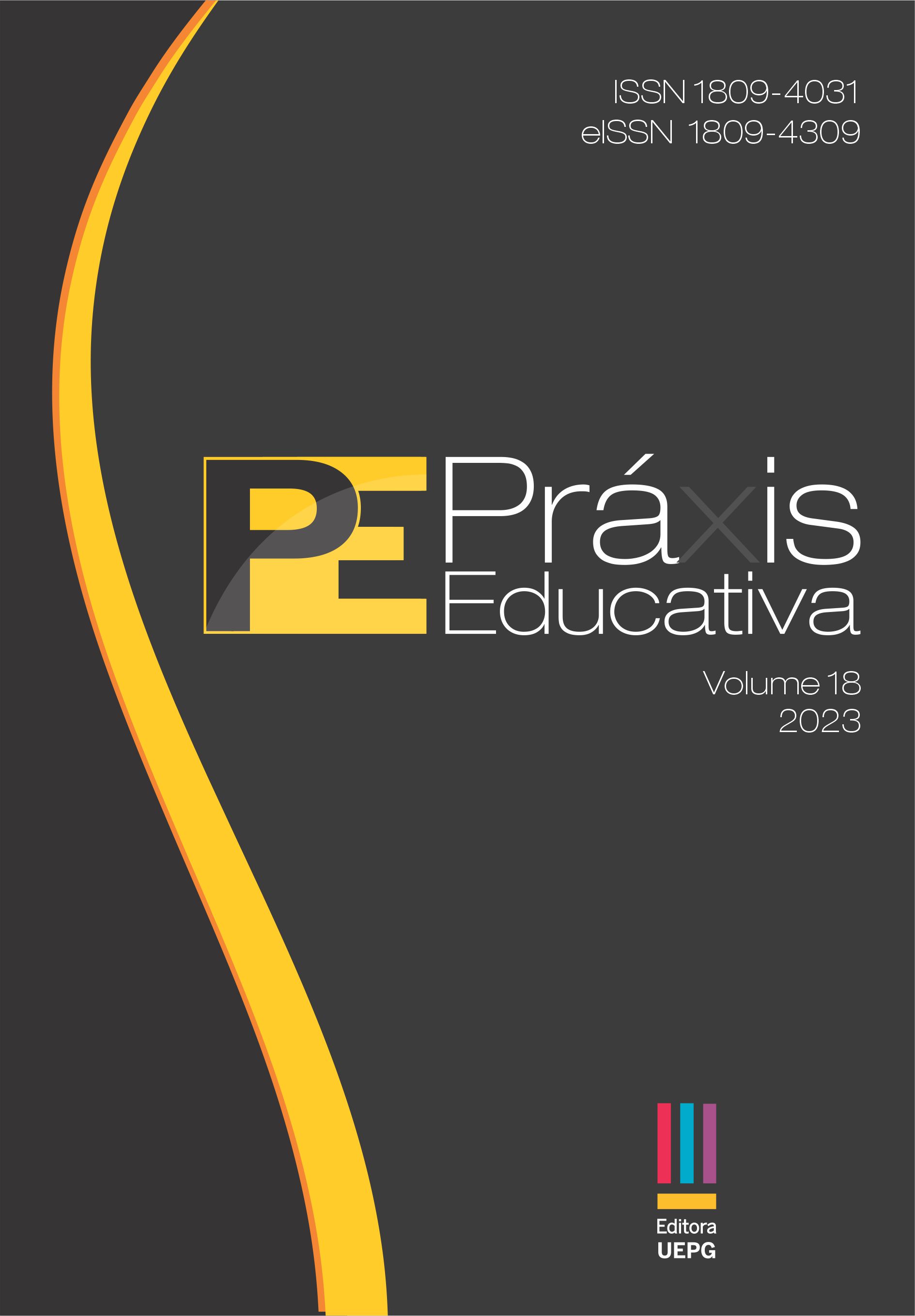Analysis of the prevalence, evolution, and severity of dishonest behaviors of Spanish graduate students: the vision of academic heads
DOI:
https://doi.org/10.5212/PraxEduc.v.18.21027.009Resumo
Most of the studies aimed at analyzing academic dishonesty amongst university students target the undergraduate cluster. This study aims to improve this situation by exploring and describing the opinion and perception of postgraduate degree academic heads (i.e. university vice-rectors, heads of the doctoral programs, heads of the postgraduate office, etc.) about the prevalence, evolution, and severity of dishonest behaviors and misconducts potentially committed by students in order to generate evidences that can help improving institutional strategies and policies to confront academic misconduct. The research it is based on the results of an online questionnaire administered to 102 postgraduate studies academic heads from 42 Spanish universities in relation to: improper conduct during exams and tests, dishonest behavior in the preparation or writing of assignments and dissertations, dishonest practices of a general nature and, finally, dishonest behavior in research. The study results highlight that the most prevalent practices and those that have increased the most are related to the preparation and submission of academic assignments and written activities and, also, research related activities. Regarding the severity, there is considerable consensus among Spanish academic heads that most of the dishonest actions analyzed are very serious and critical behaviors. In general terms, the results obtained point out focus areas of possible interventions aimed at the prevention, detection and punishment of fraudulent and dishonest behaviors in postgraduate studies, with the analysis of the degree of consensus/dissent among academic heads being a key element when designing and implementing these reforms and institutional interventions. This paper covers a deficit of evidences regarding academic integrity in postgraduate level and it does it using relevant informants: academic postgraduate heads, a target group that has high relevance as can generate synergies of change and improvement on the situation described by the present study.
Keywords: Postgraduate. Higher Education. Academic Management. Academic Integrity. Plagiarism. Cheat.
Downloads
Métricas
Downloads
Publicado
Como Citar
Edição
Seção
Licença
Copyright (c) 2022 Práxis Educativa

Este trabalho está licenciado sob uma licença Creative Commons Attribution 4.0 International License.
Autores que publicam nesta revista concordam com os seguintes termos:
a) Os autores mantêm os direitos autorais e concedem à revista o direito de primeira publicação, com o trabalho simultaneamente licenciado sob a Creative Commons Attribution License que permite o compartilhamento do trabalho com reconhecimento da sua autoria e publicação inicial nesta revista.
b) Os autores são autorizados a assinarem contratos adicionais, separadamente, para distribuição não exclusiva da versão publicada nesta revista (por exemplo, em repositórios institucionais ou capítulos de livros), com reconhecimento da sua autoria e publicação inicial nesta revista).
c) Os autores são estimulados a publicar e distribuir a versão onlline do artigo (por exemplo, em repositórios institucionais ou em sua página pessoal), considerando que isso pode gerar alterações produtivas, bem como aumentar o impacto e as citações do artigo publicado.
d) Esta revista proporciona acesso público a todo o seu conteúdo, uma vez que isso permite uma maior visibilidade e alcance dos artigos e resenhas publicados. Para maiores informações sobre esta abordagem, visite Public Knowledge Project, projeto que desenvolveu este sistema para melhorar a qualidade acadêmica e pública da pesquisa, distribuindo o OJS assim como outros softwares de apoio ao sistema de publicação de acesso público a fontes acadêmicas.
e) Os nomes e endereços de e-mail neste site serão usados exclusivamente para os propósitos da revista, não estando disponíveis para outros fins.

Este obra está licenciado com uma Licença Creative Commons Atribuição 4.0 Internacional.

Este obra está bajo una licencia de Creative Commons Reconocimiento 4.0 Internacional.









